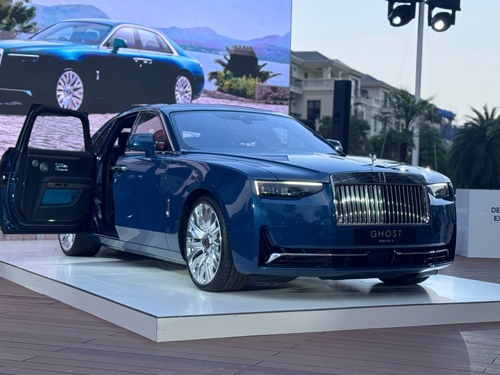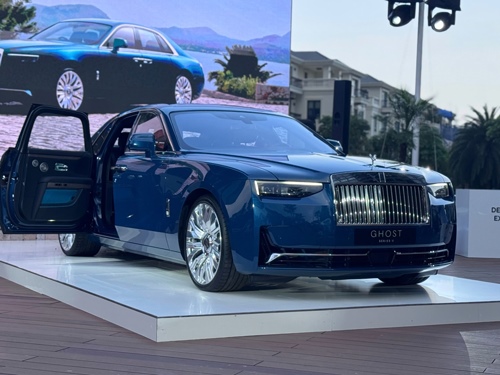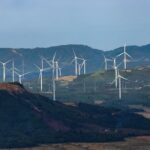The automotive industry in Vietnam is facing a challenge with most assembled and imported vehicles having high fuel consumption rates. With the deadline to meet new fuel consumption regulations looming, changes need to be made.
Mandating Fuel-Efficient Vehicles
In 2022, the Prime Minister issued a decision to implement fuel consumption limits for road motor vehicles, aiming to minimize greenhouse gas emissions. This decision sets a timeline for the transportation industry to transition to more efficient vehicles.

Many current car models have high fuel consumption rates. |
By the end of September 2024, the Ministry of Transport (now the Ministry of Construction) also decided on a plan to reduce greenhouse gas emissions in the transport sector, effective from 2030. The plan sets specific fuel consumption targets for motorcycles and different categories of automobiles.
The Ministry of Construction has tasked the Vietnam Register to develop energy consumption limit standards, expected to be issued this year. This will provide a framework for businesses to self-evaluate and prepare before the official standards come into force.
Automotive Manufacturers’ Response
Many businesses have proactively developed plans to transition to newer, more fuel-efficient models. Toyota Vietnam, for instance, plans to focus on hybrid vehicles, already introducing 6 hybrid models to the domestic market. Volkswagen Vietnam is also aligning with the new regulations, communicating the updated fuel consumption requirements to their headquarters for product planning.
Luxury car brands like Mercedes and Audi, known for their high fuel consumption, are also making the shift. However, considering Vietnam a small market, these brands may not produce exclusive models for Vietnamese customers. Instead, they plan to offer smaller segments with lower fuel consumption, followed by hybrid and electric vehicles. Audi currently offers 4 electric models in Vietnam, while Mercedes has 6.
Balancing Environmental and Economic Interests
According to reports, if the MEPS standard is implemented, up to 97% of internal combustion engine vehicles will not meet the requirements. This could result in a significant drop in annual car sales, impacting the economy and government revenue. An alternative solution, the CAFC approach, which considers the average fuel consumption of a manufacturer’s entire fleet, is proposed to balance environmental and economic interests.
Mr. Dao Cong Quyet, representing the Vietnam Automobile Manufacturers’ Association (VAMA), noted that only BEV, HEV, and PHEV vehicles meet the MEPS standard. Thus, the MEPS solution limits the market to specific types of vehicles, whereas CAFC offers more flexibility. ThS Dinh Trong Khang, Deputy Director of the Institute of Environment, also favored the CAFC model, citing its adaptability and consideration of diverse vehicle types.
Mr. Tran Quang Ha, Deputy Director of the Department of Science, Technology, Environment, and Building Materials, Ministry of Construction, affirmed that fuel consumption control is just one aspect of achieving net-zero emissions by 2050. The authorities are considering a harmonious approach, and the CAFC solution seems more suitable for the current context.
|
Requiring Carbon Credits for Car Manufacturers Professor Do Van Dung from Ho Chi Minh City University of Technical Education suggested that evaluating fuel consumption based solely on engine displacement may not be sufficient. He proposed that vehicle testing should consider real-world driving conditions and advanced technologies. To meet emissions standards, car manufacturers should invest in technology upgrades and aim for EURO 6 and 7 standards, as well as develop hybrid and electric vehicles. Additionally, the government could explore the option of requiring car manufacturers to purchase carbon credits to offset emissions from traditional fuel usage. |
Article by NGUYEN HAI
– 08:15 05/04/2025
The Fresh Vietnamese Milk Producer’s Pledge: Carbon Neutrality and Net Zero
At a recent Carbon Neutrality Certification Ceremony, representatives from the TH Group (owners of the national brand TH true MILK) announced their commitment to maintaining carbon neutrality at two of their member units – TH Milk Joint Stock Company and Nui Tien Pure Water Limited Company. The companies will uphold this status according to the PAS 2060: 2014 standard until 2028, after which they aim to achieve neutrality in accordance with ISO 14068.
Carbon Trading Platform: Vietnam to Launch Pilot in June 2025
The Vietnamese government has unveiled an ambitious plan for a national carbon market. According to the proposal, a pilot carbon trading platform will be launched in June 2025, with official operations commencing in 2029. This marks a significant step forward in Vietnam’s commitment to tackling climate change and transitioning to a low-carbon economy.
Carbon Credit Sales: Empowering Farmers to Prosper
Ecological agriculture and circular farming are not just methods of cultivation, but a philosophy that strives for long-term sustainability for both people and the planet. With a shared goal of achieving Net Zero by 2050, Vietnam’s agricultural sector is undergoing a transformation towards ecological farming practices to protect natural resources and community health, paving the way for a green, clean, and resilient future.
“Carbon Credits: Refining Standards to Unlock Forest Development Opportunities”
Following COP21, the Prime Minister directed the Ministry of Agriculture and Rural Development, along with other relevant ministries, to initiate tasks in line with the new agreement. Notably, this includes a commitment to contribute 100% of carbon credits towards the nationally determined contributions (NDCs). For the period 2021–2025, Vietnam aims to generate 25 million carbon credits, a significant step towards a sustainable future.





















